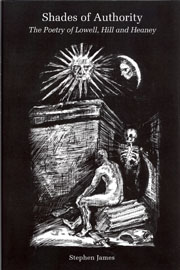Violence and Idealism
from Essays on Robert Lowell
Summary
Robert Lowell's poems have harmful properties. Family members, fellow writers and historical and contemporary figures are exposed to unsparing and often unflattering scrutiny. However, nobody falls foul of such harsh measures more frequently or more severely than Lowell himself; the destructive impulse at work in the verse is always also a self-destructive one. This is illustrated most conspicuously in Lowell's infamous transcription of recriminatory communications from his abandoned wife, Elizabeth Hardwick, in the poems of The Dolphin: the intimate violations perpetrated in this volume injure the poet first and foremost. In terms of their style, too, his poems are liable to be characterized in terms of self-damaging tendencies: these are evident in the stricken and disgusted rhetoric of the early volumes, the fragile ‘threadbare art’ of the poetry from Life Studies onwards, and the compulsive – and, to many, ruinous – revisions of the later work. Elizabeth Bishop is not alone in having felt that the incessant alteration of his poems was regrettable, noting with rueful irony in her elegy for Lowell, ‘You can't derange, or re-arrange, / your poems again’. Yet his poetry also exposes how the inflicting of an injury and the desire to make amends can be mutually dependent: his phrase ‘one revelation healing the ravage of the other’ in the second poem of the ‘Mexico’ sequence in History (LCP 624) reads like a motto for his enduring sense that harming and healing impulses are inextricable.
- Type
- Chapter
- Information
- Shades of AuthorityThe Poetry of Lowell, Hill and Heaney, pp. 46 - 62Publisher: Liverpool University PressPrint publication year: 2007
- 1
- Cited by

